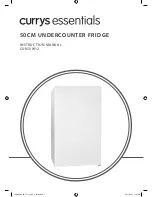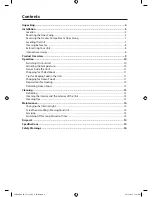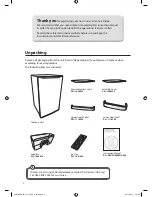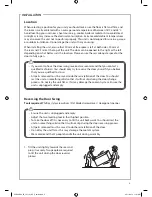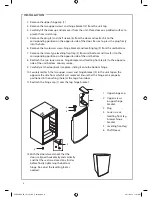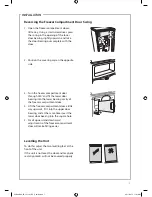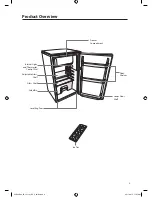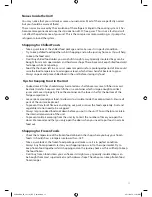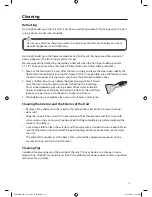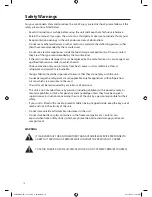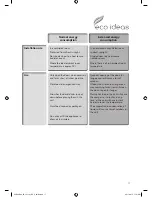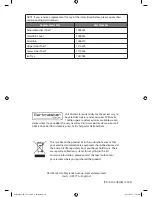
11
Noises Inside the Unit!
You may notice that your unit makes some unusual noises. Most of these are perfectly normal,
but you should be aware of them!
These noises are caused by the circulation of the refrigerant liquid in the cooling system. It has
become more pronounced since the introduction of CFC free gases. This is not a fault and will
not affect the performance of your unit. This is the compressor motor working, as it pumps the
refrigerant around the system.
Shopping for Chilled Foods
• Take a quick look at the chilled food package and make sure it is in perfect condition.
• Try to keep chilled food together whilst shopping and on the journey home as this will help
to keep the food cold.
• Don’t buy chilled food unless you can chill it straight away. Specially insulated bags can be
bought from most supermarkets and hardware shops. These bags can keep chilled food cold
for longer while transporting.
• Food that has been left in a car or at room temperature for a prolonged period of time could
raise the food temperature to a dangerous level, which allows harmful bacteria to grow.
• Always unpack and place chilled food in the unit before storing dry food.
Tips for Keeping Food in the Unit
• Cooked meats/fishes should always be stored on a shelf above raw meats/fishes to avoid
bacterial transfer. Keep raw meats/fishes in a container which is large enough to collect
juices and cover it properly. Place the container on the lowest shelf at the bottom of the
fridge compartment.
• Leave space around your food, to allow air to circulate inside the compartments. Ensure all
parts of the unit are kept cool.
• To prevent transfer of flavours and drying out, pack or cover the food separately. Fruit and
vegetables do not need to be wrapped.
• Always let pre-cooked food cool down before you put in the unit. This will help to maintain
the internal temperature of the unit.
• To prevent cold air escaping from the unit, try to limit the number of times you open the
doors. We recommend that you only open the doors when you need to put food in or take
food out.
Shopping for Frozen Foods
• Check the temperature of the frozen food cabinet in the shop where you buy your frozen
foods. It should show a temperature lower than -18°C.
• Take a quick look at the frozen food package and make sure it is in perfect condition.
• Always buy frozen products last on your shopping trip or visit to the supermarket. Try to
keep frozen food together whilst shopping and on the journey home as this will help to keep
the food frozen.
• Don’t buy frozen food unless you can freeze it straight away. Specially insulated bags can
be bought from most supermarkets and hardware shops. These bags can keep frozen food
frozen longer.
CUR50W12_IB_121121_RC_Pauline.indd 11
21/11/2012 11:27 AM

